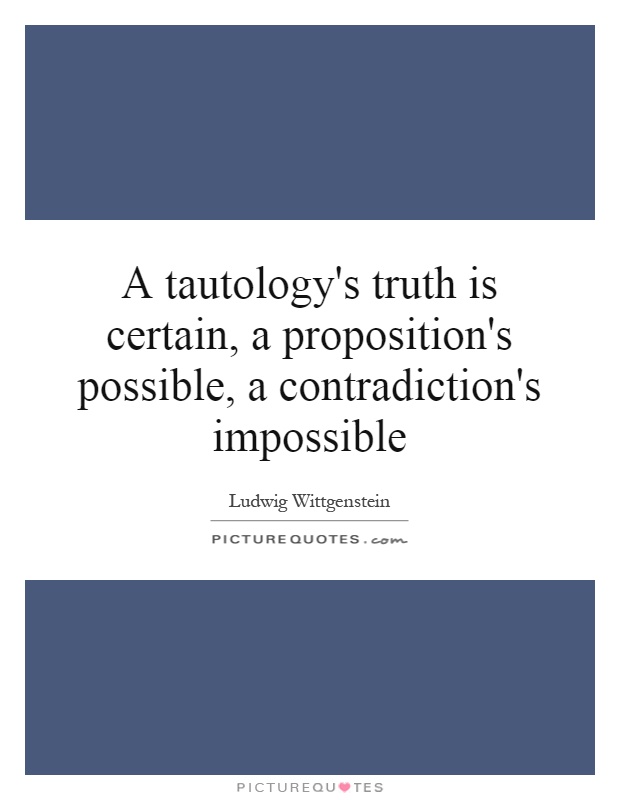A tautology's truth is certain, a proposition's possible, a contradiction's impossible

A tautology's truth is certain, a proposition's possible, a contradiction's impossible
Ludwig Wittgenstein, one of the most influential philosophers of the 20th century, made significant contributions to the fields of logic, language, and philosophy of mind. His work on the nature of language and meaning has had a lasting impact on the way we understand the relationship between language and reality. One of Wittgenstein's key insights was the distinction between tautologies, propositions, and contradictions, and the different levels of certainty associated with each.In his seminal work, the Tractatus Logico-Philosophicus, Wittgenstein famously stated that "a tautology's truth is certain, a proposition's possible, a contradiction's impossible." This statement encapsulates his view that tautologies, which are statements that are true by definition, are necessarily true and cannot be false. For example, the statement "all bachelors are unmarried" is a tautology because it is true by definition. The truth of tautologies is certain because they are true in all possible worlds.
On the other hand, propositions are statements that can be either true or false, depending on the way the world is. For example, the statement "it is raining outside" is a proposition because it can be true in some possible worlds and false in others. The truth of propositions is contingent on the way the world is, and therefore they are not necessarily true or false. Wittgenstein believed that propositions are possible because they can be true in some possible worlds and false in others.
Contradictions, on the other hand, are statements that are necessarily false. For example, the statement "this circle is square" is a contradiction because it is logically impossible for a circle to be square. Contradictions are impossible because they cannot be true in any possible world. Wittgenstein argued that contradictions are nonsensical and cannot be meaningful statements.












 Friendship Quotes
Friendship Quotes Love Quotes
Love Quotes Life Quotes
Life Quotes Funny Quotes
Funny Quotes Motivational Quotes
Motivational Quotes Inspirational Quotes
Inspirational Quotes